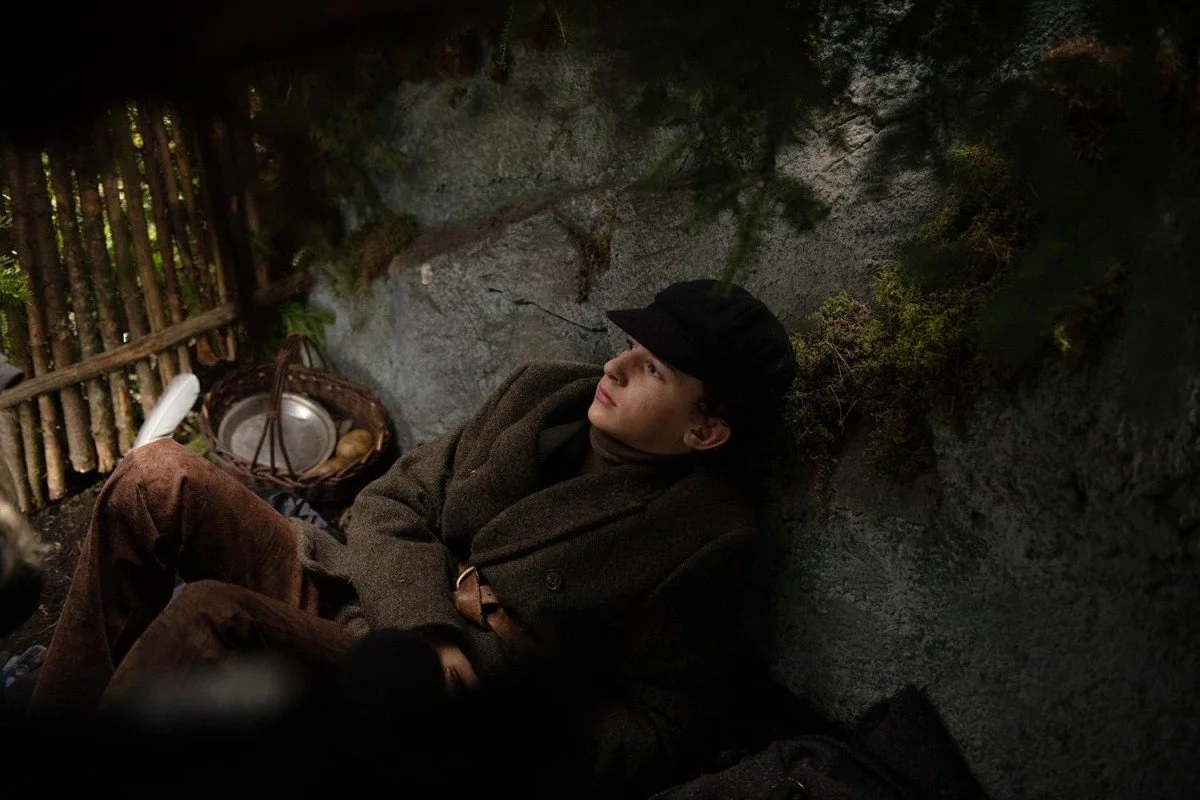This is about a movie that has been out for a while now but comes from one of my favourite directors, Wes Anderson. His first children's movie, The Fantastic Mr. Fox, came out in 2009. I only realized after the fact that this director created The Royal Tenenbaums, another favourite of mine. I had felt that same joy I had during The Tenenbaums as I did in Mr. Fox. Then a wondrous friend connected the two together and I became instantly an auteur fan. For indeed, Wes Anderson is an auteur.
The Grand Budapest Hotel: Camera as Director
There are too many things to be said for Wes Anderson's latest film, but there are some important notes I must log here because I think they are just brilliant.
I am first and foremost, a massive fan of his collection of works. Not realizing at a younger age just who he was, I fell in love with The Royal Tenenbaums and this carried me through until I saw The Fantastic Mr. Fox and Life Aquatic.
Complete Filmography
What makes Wes Anderson's films so lovable are his characters and intricate plotlines. The characters are usually simple in that only enough of their life is made known to the viewers to guide them through the film. We are never emotionally attached to any character because we are only fascinated by them. This makes it very easy for Mr. Anderson to kill off characters at will, without a tear being shed by the audience. The narrator of The Grand Budapest goes so far to say in his voice-over narration that little is known of Mr. Gustave because he never told anyone who he was or where he came from. He is who he is in the film and that is all that we as the audience need. We learn who he is not through history but through his present character development. There are a few times, such as those in The Royal Tenenbaums, where Mr. Anderson does use flashbacks to get the viewers up to date with the current story. But even then, the action of the past is used to describe the present action (making it once again in the moment and alive).
How are we not emotionally attached to any character? Ask yourself this: do you relate to his characters? The answer is usually no because his characters are extremely fictional and even aware of their fictionality. They are serious people leading lives that are meant to be taken seriously, but all through sarcasm and a theatrical flare. I dare say, Shakespeare would have gladly sat through any Anderson film (if he were still kicking around)...
But I stray. We remain interested in the plot and what happens to the characters because of our own curiosity. Like Deputy Kovacs cat before it is tossed out the window and declared "deceased." When Mr. Gustave H. is in jail, we are only concerned in how he will escape, without a tinge of sympathy for his well-being. His actions spur the narrative forward, and his commentary undercuts any moment in which the characters 'ought' to portray emotions. After Mr. Gustave H. and Zero Moustafa are beaten on the train for the first time, Gustav tries to recite a poem to express his emotions but stops half way through with a "f*ck it." And by undercutting the actions, we the audience are never given time to react properly. The only sounds that we can express from an Anderson film is muted laughter or witty chuckling.
The theatrical-ness and fictionality of the worlds that Mr. Anderson is able to create are more in control than the characters. This can be interpreted by the camera movement. Most films create a sense of action-realism in the narrative by having the camera follow a character's actions. It is as if the camera just happened to be there and is turned on. In Mr. Anderson's films, though, the camera often moves before the character has a chance to go off frame and rests for several seconds on a blank stage. The characters reappear again and continue their actions. The camera is directing the story and pulling us away from getting too carried away with the characters. It tells us where to look, when to look, and what to take away from that particular scene. These montages are then linked together by a series of inter-titles highlighting the introduction of characters/events that will be introduced into the plotline. We do not question the entrance of each character and automatically believe that they too exist in this filmic world.
When Mr. Gustave is declared dead before he is able to grow old from a bullet I felt little sadness for this, as little as Zero's wrinkled face showed. "The world that Gustave lived in died out long before he was born. But he carried the falsity through with charm and grace" (something to this effect is expressed at the end of the film by Zero).
There are two relatable strong emotions (if we can even call them that in light of Anderson) greatly explored in the film: sexuality and love. The latter is more simple. Gustave's love for old blond women, Zero's love for Agatha, the author's love for his grandson, and the curious girl at the beginning who visits the dead author's grave. Perhaps the most memorable exclamation of love is on the train when Mr. Gustave yells angrily at the 'firing squad': "GET YOUR HANDS OFF OF MY LOBBY BOY."
On the note of sexuality - this mainly takes place through Gustave's interactions with his hotel guests and the graphic painting of the two women pleasuring each other, which replaces "The Boy with Apple." The painting is a hilarious undercutting of what Boy with Apple stands for (innocence and vitality). Yet, the two women are neither offensive or vulgar - it is just a starkly opposite portrayal. What is made clear, however, is the underlying attraction Gustave has for younger boys. All the concierges seem to have an attraction for boys too. Whether sexual or purely platonic, the movie never makes a clear case.
To draw these thoughts to a close, I say go watch the film if you haven't and if you have you will perhaps agree/disagree with my analyses (feel free start a discussion below).
I am afraid that will be all "darling."
Until the next Anderson film.
- Jenn






